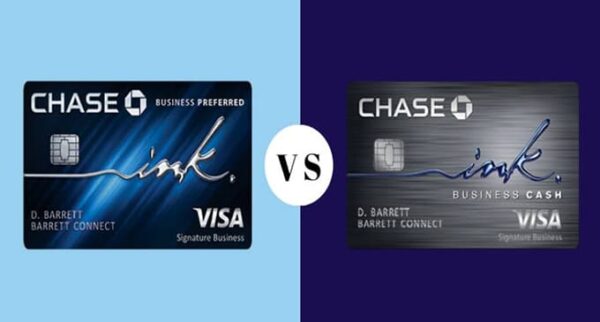Ink Business Unlimited® Credit Card review
This card offers flat-rate cash-back rewards and an opportunity to combine a no-annual-fee card with other Ultimate Rewards cards to truly maximize your rewards earning and redemption value.
Jump to Section
card_name
- Rewards
- points_per_dollar
- Welcome Bonus
- bonus_miles bonus_miles_disclaimer
- Annual Fee
- annual_fees
Key Features
descriptionEditor Analysis:
- Earn $750 bonus cash back after you spend $6,000 on purchases in the first three months from account opening.
- Pay no annual fee and rack up some healthy rewards at 1.5% cash back on all your purchases without the hassle of caps or categories to keep up with.
- Take your business to the next level or help it get off the ground with intro_apr_duration no interest on purchases (RegAPR after the intro period).
- Flat-rate cash-back cards are great options for business owners who spend regularly in a wide variety of categories, but if a big chunk of your spending is in a particular category, like travel or office supplies, you stand to earn more rewards with a card that offers bonus rewards in those categories.
card_name benefits
The CardName is a flat-rate small business card that offers cardholders unlimited 1.5% cash back on every purchase. Given its no-annual-fee nature and flat-rate cash-back opportunity, this card could be an excellent complement to the CardName with which you earn three points per $1 spent (3%, essentially) on travel and some business categories, but only one point (1% back) on your other purchases. More on how to maximize your rewards by combining these two cards below.
The card_name, which doesn’t have an annual fee, lets you redeem rewards (you get them in the form of highly useful Chase Ultimate Rewards points) for gift cards and travel, too.
This card also offers added benefits for new card members, including introductory 0% APR on purchases for the first intro_apr_duration (then, RegAPR). It’s also currently offering new card members an opportunity to earn $750 bonus cash back once spending $6,000 on purchases in the first three months from account opening.
Plus, being a business card, it allows card members to add employee cards to the account at no additional cost. You can set individual employee spending limits and money spent on those cards can help you earn rewards faster.
How to maximize card_name rewards
The CardName is a cash-back card, but since your rewards accumulate as Chase Ultimate Rewards points, it gives you the flexibility to use what you earn in other ways.
With the card_name, you can pool points you earn with those you earn from other Chase cards with Ultimate Rewards, including the CardName and the CardName. You can combine points from those cards and then use all your points together for redemption. If you choose to redeem your points for travel through the Ultimate Rewards program, remember that card_name points – even those pooled from other cards – are worth 25% more when redeemed for travel through Chase Travel℠. So, rather than getting a 1:1 redemption of your points with the card_name, you can pool those points with the card_name for a better reward value and get even more from your cards.
Here’s another reason why it’s a smart idea to pair this card with another in the Ultimate Rewards program…
Say you have the card_name, which gives you three points for every $1 spent on travel; shipping purchases; and Internet, cable and phone services (up to $150,000 spent annually), but it only gives you one point for every $1 on all your other purchases. You can get strategic with these two cards by using your card_name for the purchases in which you get three points per $1 and then the card_name for other purchases since you get 1.5% back on all your purchases with that card. Then, as discussed above, move all your points into the card_name bucket (it’s easy to do via your online account) so you’ll receive 25% more value when you redeem for travel through Chase Travel℠.
card_name foreign transaction fees
If you’re a frequent international traveler, the CardName might not be the best travel companion as it charges a fee (foreign_transaction_fee) on all foreign transactions. This might not seem like much in the grand scheme of things, but think of it this way: If you travel abroad four times a year, spending on average $3,000 on foreign transactions each time you go, you’ll end up spending an extra $360 in fees.
card_name approval odds
A small business credit card is a great way to separate personal and business expenses, but how do you know if you qualify for a small business credit card?
The list of people who can apply for a small business credit card is long, and includes freelancers/self-employed individuals, entrepreneurs, small business owners/officers, owners/officers of established businesses, and owners/officers of startups. Most credit card companies define "business" quite broadly when it comes to considering applicants for small business credit cards. To qualify for a business credit card, you must be an "authorized officer" of a company. Basically, this means that you must have the legal right to enter into borrowing arrangements with financial institutions on behalf of a business. If you are the owner of a sole proprietorship business or the sole owner of a small business, you are already an "authorized officer." You are, after all, the only owner of the company. It can be more complicated determining who ranks for businesses that have multiple owners. In general, though, most owners are also "authorized officers."
➤ LEARN MORE:Who can apply for a business credit card?
Credit card issuers consider each application on its own merits, so don’t assume you don’t qualify for the CardName just because your business might not fit a standard business model. Do keep in mind though that your personal credit history will likely be what is used to determine your eligibility and/or credit limit on a business card before you’ve built up a credit history for your business.
If your business doesn’t have a tax ID number (EIN), you can enter your personal social security number instead. In general, try to have the following information handy when you apply:
- Business name
- Business name as you want it to appear on the card
- Business address
- Type of business
- Tax ID number (or your social security number)
- Number of employees
- Annual revenue/sales
- Monthly expenses
- Number of years in business
- Ownership type (publicly traded, privately owned, etc.)
- Business structure (LLC, corporation, non-profit, etc.)
How do cardholders rate the card_name?
CardRatings commissioned Slice MR in November 2024 to survey 1,666 cardholders nationwide. Responses were given on a scale of 1-10 and respondents’ ratings were then averaged under broad topics. Here are the results for the CardName:
| Cost Effectiveness | 7.73 |
| Rewards Satisfaction | 8.05 |
| Customer Service | 8.03 |
| Website/App Usability | 8.36 |
| Likehood of Continuing to Use | 8.18 |
| Recommend to a Friend/Colleague | 8.11 |
| Overall Rating | 8.05 |
Survey results by question
Respondents rated their personal experience with the card_name, answering questions on a scale from 1-10. The results for each question can be found below:
How does the card_name compare to other business credit cards?
card_name vs. card_name
discontinued
The welcome offers for the card_name and CardName are similar: they both offer introductory 0% APR on purchases for the first 12 months (then RegAPR for Cash® and RegAPR for Unlimited®). With the card_name new cardholders can earn $350 once spending $3,000 on purchases in the first three months and an additional $400 once spending $6,000 on purchases in the first six months after account opening.
The cards start to look different when you compare the ongoing rewards. With the card_name you’ll receive 5% cash back on the first $25,000 spent in combined purchases at office supply stores and on internet, cable and phone services each account anniversary year; 2% cash back on the first $25,000 spent in combined purchases at gas stations and restaurants each account anniversary year; and 1% cash back on all other card purchases with no limit to the amount you can earn.
With card_name, the cash back you receive looks less generous at first glance, and it may be, but if you do the math, it also may work out far better in your favor. That’s because it offers an unlimited 1.5% cash back on every purchase – or you can redeem rewards for gift cards and travel. So if your business spends a lot, and you don’t want a cap on how much you can spend to get your rewards, it may be a more beneficial option. Or, like we mentioned above, it might make good sense to hold both cards and use them simultaneously, especially since neither card charges an annual fee.
card_name vs. card_name
discontinued
We’ve already briefly compared these two cards above, and explained why they could be two good options to use simultaneously, but let’s go over some of the card details again:
The CardName earns new cardholders 90,000 bonus points after you spend $8,000 on purchases in the first 3 months from account opening. That’s $900 cash back or $1,125 toward travel when redeemed through Chase Travel℠. Additionally, cardholders earn three points per dollar on the first $150,000 spent on travel and select business categories each account anniversary year; and one point on all other purchases with no limit to the amount you can earn. Points are worth 25% more when redeemed for travel through Chase Travel, and don’t expire as long as your account is open. There are no foreign transaction fees and additional employee cards are free, but there is an annual fee of AnnualFees. However, we consider this a small price to pay considering the exceptional rewards this card can earn its users.
Since card_name points can be pooled with card_name, and they’re worth more in an card_name account, if you don’t mind paying an annual fee, holding both cards might be your key to earning the most rewards. If an annual fee isn’t something your business can justify though, the card_name is a solid card to hold.
Is the card_name a good card?
The CardName is a good card for business owners looking for a card without an annual fee and that offers a simple-to-remember rewards program. The card also makes sense for people with other Chase cards that operate on the Ultimate Rewards program, so you can take advantage of each card’s perks and pool your points to get the most out of your rewards.
Frequently asked questions
Does Chase Ink Business Unlimited® have foreign transaction fees?
Does Ink Business Unlimited® earn Chase Ultimate Rewards points?
What is the interest rate for Chase Business Ink Unlimited®?
Our Methodology
Survey methodology: CardRatings commissioned Slice MR in November 2024 to survey 1,666 cardholders nationwide. CardRatings’ website analytics from Jan. 1, 2024-Oct. 31, 2024 were used to determine a selection of the most popular cards. Responses to 10 questions were given on a scale of 1-10. For nine of these questions, respondents’ scores were averaged under broad topics. The overall rating represents an average of respondents’ responses to their overall rating of each card.
Disclaimer:The information in this article is believed to be accurate as of the date it was written. Please keep in mind that credit card offers change frequently. Therefore, we cannot guarantee the accuracy of the information in this article. Reasonable efforts are made to maintain accurate information. See the online credit card application for full terms and conditions on offers and rewards. Please verify all terms and conditions of any credit card prior to applying.
This content is not provided by any company mentioned in this article. Any opinions, analyses, reviews or recommendations expressed here are those of the author’s alone, and have not been reviewed, approved or otherwise endorsed by any such company. CardRatings.com does not review every company or every offer available on the market.










